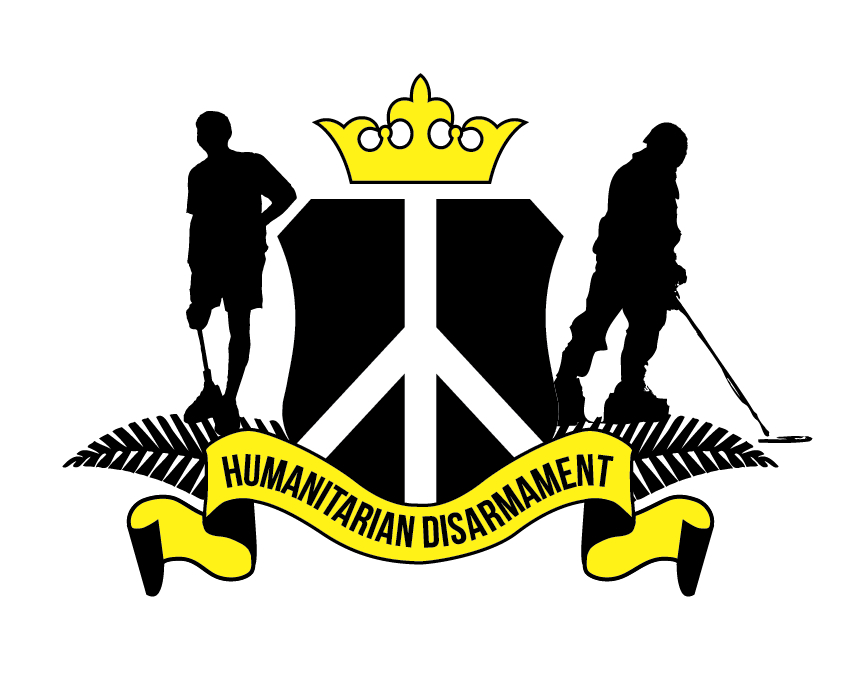On the occasion of the 20th anniversary of the International Campaign to Ban Landmines, 90 representatives from non-governmental organizations and global coalitions gathered in New York for a Humanitarian Disarmament Campaigns Summit convened by Human Rights Watch. The Summit Communiqué issued by 31 signatories calls for strong disarmament initiatives driven by humanitarian imperatives to strengthen international law and protect civilians. The Communiqué was delivered to the United Nations High Representative for Disarmament Affairs Ms. Angela Kane and distributed to government representatives attending the UN General Assembly First Committee on Disarmament and International Security.
A PDF of the Communiqué is available in English and French. The full text and list of signatories is also reprinted below.
Humanitarian Disarmament Campaigns Summit
New York
20-21 October 2012
Communiqué
We support strong disarmament initiatives driven by humanitarian imperatives to strengthen international law and protect civilians. By advancing disarmament from a humanitarian perspective, we seek to prevent further civilian casualties, avoid socio-economic devastation, and protect and ensure the rights of victims.We represent non-governmental organizations and coalitions working in the field of humanitarian disarmament, with the shared objective of protecting civilians from the harmful effects of armed violence. We have come together on the 20th anniversary of the founding of the International Campaign to Ban Landmines, 1997 Nobel Peace Laureate, to review and strengthen our collective work and to expand and further unite our community.
History has shown that the strongest and most significant disarmament achievements have been driven by humanitarian imperatives, as well as by the need to achieve the clearest and highest standards possible. These initiatives have involved genuine cooperation and substantive partnerships between governments, international organizations, and civil society. They have resulted in the complete prohibition of certain types and classes of weapons that cause unnecessary harm, such as antipersonnel landmines and cluster munitions.
Humanitarian disarmament achievements are rarely the product of consensus decision–making, but rather created by the solid will of an overwhelming majority. Such approaches stand in stark contrast to processes where those few that want the least have been able to block the progress sought by the many.
Civil society plays a critical role in humanitarian disarmament. Our monitoring and research provides credible, first-hand information on the use of various weapons and the egregious harm they cause to civilian populations. Our advocacy leads to the creation and implementation of strong national and international standards. Our operations in affected countries protect civilians, support conflict recovery, and prevent and reduce armed violence.
We welcome the substantive progress that is being made with respect to existing international humanitarian disarmament treaties, but urge continued vigilance to ensure compliance with, full and effective implementation of, and universalization of these instruments.
The world faces an array of emerging and long-standing humanitarian disarmament challenges that must be tackled as soon as possible. But we cannot do this work alone.
We therefore call on all actors to stay focused on making existing humanitarian disarmament treaties work and use every opportunity to advance international law and practice to prevent harm to civilians.
We urge all states to:
- Adopt a proactive approach to tackle existing and emerging issues of concern in humanitarian disarmament by reviewing and strengthening policy and practice, undertaking national measures, and intensifying diplomatic engagement and political leadership;
- Acknowledge that successful multilateral diplomatic work in humanitarian disarmament is best achieved when based on the will of the overwhelming majority of participating states;
- Recognize that civil society plays a vital role in tackling humanitarian disarmament concerns and work to accord a substantive role for civil society representatives in multilateral processes.
Signatories:
Acronym Institute for Disarmament Diplomacy
Chemical Weapons Convention Coalition
Center for Civilians in Conflict
Ecumenical Campaign for a Strong and Effective Arms Trade Treaty, World Council of Churches
Institute for Security Studies
International Campaign to Abolish Nuclear Weapons
International Campaign to Ban Landmines
International Coalition to Ban Uranium Weapons
International Committee for Robot Arms Control
International Network on Explosive Weapons
Strategic Concept for Removal of Arms and Proliferation (SCRAP)
Women’s International League for Peace and Freedom
Ambassador Jayantha Dhanapala, President, Pugwash Conferences on Science & World Affairs


Leave a Reply